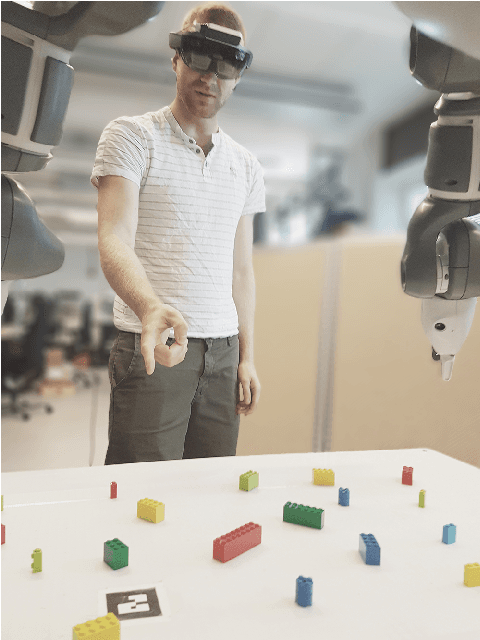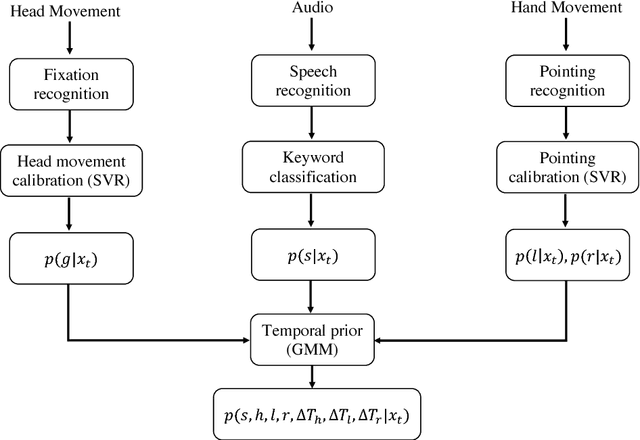Exploring Temporal Dependencies in Multimodal Referring Expressions with Mixed Reality
Paper and Code
Feb 04, 2019



In collaborative tasks, people rely both on verbal and non-verbal cues simultaneously to communicate with each other. For human-robot interaction to run smoothly and naturally, a robot should be equipped with the ability to robustly disambiguate referring expressions. In this work, we propose a model that can disambiguate multimodal fetching requests using modalities such as head movements, hand gestures, and speech. We analysed the acquired data from mixed reality experiments and formulated a hypothesis that modelling temporal dependencies of events in these three modalities increases the model's predictive power. We evaluated our model on a Bayesian framework to interpret referring expressions with and without exploiting a temporal prior.
 Add to Chrome
Add to Chrome Add to Firefox
Add to Firefox Add to Edge
Add to Edge